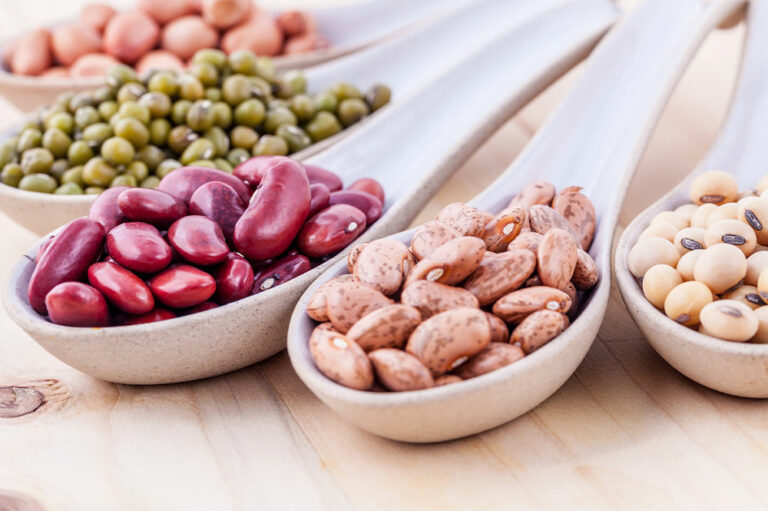
ADHD – Causes, Symptoms, and Foods to Avoid
Neurodevelopmental disorders in childhood can challenge children’s intellectual growth and development. Timely diagnosis and intervention are essential to ensure the child’s steady progress. Attention deficit hyperactivity disorder (ADHD) is among the most prevalent neurodevelopmental conditions, involving difficulty paying attention, severe restlessness, and impulsive behavior. Today, several types of therapies are being implemented to help children with ADHD perform better in the academic and personal spheres. Here’s everything to know about ADHD:
What Causes ADHD?
Genetic predisposition
Adoption studies have shown that genetic factors play a significant role in the onset of ADHD. In most cases, individuals inherit this condition from their parents. About one-third to 50% of children with parents affected by ADHD inherit the disorder.
Brain injury
Children suffering from a severe head injury affecting the brain are likely to develop ADHD. In such scenarios wherein ADHD is caused by trauma, the condition is called secondary ADHD.
Exposure to harmful substances during pregnancy
Studies have shown that the chances of developing ADHD were higher among children whose mothers had been exposed to harmful substances like lead during pregnancy.
Maternal stress and trauma during pregnancy
Children whose mothers have undergone immense stress or trauma while pregnant are susceptible to being diagnosed with ADHD later in life.
Premature birth
Some studies have demonstrated that children born prematurely will likely develop ADHD symptoms during childhood.
Symptoms of ADHD
Fidgeting
Individuals with ADHD may engage in constant fidgeting, including tapping their feet, drumming their fingers, and being unable to sit still for long periods.
Anxiety
ADHD involves restlessness and severe hyperactivity, which can trigger anxiety, particularly among adults grappling with the condition. Such anxiety is typically caused by distressing thoughts repeatedly playing on their minds and can worsen other ADHD symptoms.
Extreme difficulty paying attention
One of the most prominent symptoms of ADHD is the inability to pay attention to events around the person. This symptom stems from low levels of dopamine and norepinephrine, neurotransmitters associated with focus and attention.
Emotional concerns
Individuals with ADHD tend to experience several overwhelming emotions, which can cause constant shifts in mood and sometimes trigger other mental health conditions like depression. In cases of undiagnosed and untreated ADHD, these emotional issues can hamper one’s personal life and relationships.
Forgetfulness
The inability to pay attention to significant aspects of life can cause forgetfulness among persons with ADHD. While such forgetfulness may not pose severe challenges in some cases, it can lead to major troubles for some individuals.
Impulsive behavior
Another common ADHD symptom is the inability to control impulses, leading to impulsive and irrational behavior. Such behavior, ranging from not letting others speak in a conversation to committing acts without considering the consequences, can be socially inappropriate and sometimes even harmful to oneself or others.
Psychotherapeutic Interventions
Cognitive behavioral therapy
Cognitive behavioral therapy, or CBT, is considered among the most effective and tried-and-tested interventions for ADHD. This therapy is based on the idea that thoughts influence behavior and that a positive change in thoughts can produce desirable behaviors. It focuses on changing negative thoughts occurring automatically in mind. For example, CBT for persons with ADHD focuses on changing negative thought patterns such as all-or-nothing thinking and overgeneralization, which can lead to poor time management, distractibility, procrastination, and lack of planning.
Dialectical behavioral therapy
This therapy focuses on mindfulness, interpersonal effectiveness and distress tolerance, emotional regulation, impulsivity and hyperactivity, and attention to help persons with ADHD deal with their symptoms. The State-Trait Anger Expression Inventory (STAXI) test revealed that patients who received this intervention could cope better than those who did not.
Coaching
ADHD coaching involves helping persons with ADHD utilize mediums like texts, phone-call reminders, and emails to fulfill their set targets and overcome forgetfulness. The technique broadly involves setting concrete goals and completing homework tasks.
Mindfulness-based cognitive therapy
This type of therapy involves practicing mindfulness, meditation, and cognitive therapy, to cope with mental health conditions. Mindfulness-based cognitive therapy has been shown to positively affect persons with ADHD, helping them with emotion control and understanding, elimination of distraction, and better executive functioning.
Foods to Avoid
Sugary foods
High sugar intake can stimulate dopamine and opioid receptors in the brain. However, since ADHD already involves dopamine dysregulation, sugar can elevate ADHD symptoms, so sugary foods like soft drinks, desserts, and baked items should be strictly limited or avoided.
Refined flour
Nutrients like iron, niacin, and polyunsaturated fatty acids are essential for coping with ADHD symptoms. Refined flour lacks all such nutrients; therefore, increased intake of products made of refined flour can cause nutrient deficiencies and worsen ADHD symptoms. In addition, foods containing refined flour, including white bread, pizza, burger, and confectioneries, are a no-no for persons with ADHD.
High-carb foods
Foods high in carbohydrates, such as bread, potatoes, processed foods, popcorn, and pasta, can elevate epinephrine and insulin levels in the body, which can cause or increase hyperactivity and anxiety. Although the body requires carbohydrates, it is best to exercise portion control and avoid overeating carb-based foods.
Artificial food colors
Studies have shown that artificial food colors may contain certain elements, such as petroleum, which can change brainwave activity and aggravate mental disorders like ADHD. For example, foods such as salad dressings, candies, syrups, and cereals may contain artificial food colors and should be strictly limited.
High-fructose corn syrup
High-fructose corn syrup is associated with conditions like diabetes and cholesterol, increasing impulsive behaviors, and hasty decision-making among persons with ADHD. In addition, one must check the list of ingredients in store-bought foods and steer clear of the ones containing high-fructose corn syrup.
Conclusion
Besides avoiding certain foods, persons with ADHD must also check for food intolerances. In many cases, individuals with the condition are intolerant to dairy, soy, chocolate, wheat, and eggs. Moreover, following a nutrient-rich meal plan and a healthy lifestyle can help with symptom control.







